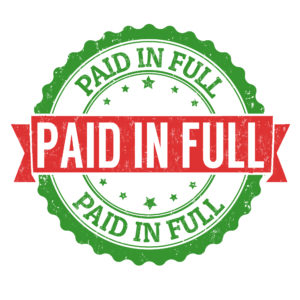The following article covers convertible term life insurance: what is it, who needs it and why one day you would want to convert your term policy to either whole life or universal life.
What is Term Life Insurance?
When talking about term life it is important to distinguish it from the other type of coverage, permanent life insurance.
Permanent Life
Permanent insurance includes cash value life insurance which is typically either whole life insurance and universal life insurance. Permanent life insurance is designed to last your entire life. Typically the premiums are fixed. These policies often build cash value, which you can access via withdrawals or through loans.
Term Life
Term life insurance is defined as a contract between the owner of the policy and the insurer, for a policy on the life of the insured, whereupon the insured’s death, the insurer pays a lump sum death benefit to the beneficiary.
The policy is for a set period of time, typically ranging from annual renewable term (1 year), 5 years, 10, 15, 20, 25, and 30 year term periods, although some companies have up to 40 year terms available.
Once the term expires, the coverage ends. The owner has the option to keep the policy at higher premiums, or in some cases, at a lower face amount.
Alternatively, the owner may choose to exercise a conversion option if the policy is convertible term life insurance (not all term life is convertible).
What is convertible term life insurance?
Most term policies include an option to convert your term life policy to a permanent policy.
If you choose to exercise this option, it allows you to convert all or a portion of the existing death benefit to permanent insurance coverage, such as whole life or universal life, with no evidence of insurability required (i.e. no medical exam or health questions).
The option to convert must be exercised prior to the end of the term or by a certain age, typically age 70 or 75.
How is my new premium determined?
When you convert your term to permanent coverage, the carrier uses your initial health class and your current age to determine your new premium for the permanent insurance coverage.
Since your initial health class determines you conversion health class, you do not have to answer any questions regarding your health and lifestyle and you do not have to take a life insurance blood test or provide a urine sample.
The Best Convertible Term Life Insurance Companies
Make sure you get your convertible life insurance with the right company. Many carriers that offer a conversion option have rather weak permanent coverage options to choose from.
Instead, choose a company that you know has a solid dividend paying whole life insurance policy that you would want to convert your term policy into.
Also, make sure that your contract allows you to convert to the permanent policy of your choosing and doesn’t limit you to a pre-defined substandard policy option.
Companies such as MassMutual, Ohio National, Penn Mutual, Minnesota Life and American United Life all offer convertible term life insurance with the option to convert to excellent cash value policies.
The alternative is to select the lowest priced term life policy that will only offer you guaranteed universal life insurance with little to no cash value.
Granted, you saved money with by choosing the cheapest policy available.
However, the small amount of money you saved is not worth the under performing permanent insurance you are stuck with, unless your only need for the insurance coverage is exclusive to the death benefit.
What are the advantages of convertible term life insurance?
We wrote an entire article on the term life vs whole life insurance discussion. Although there are various convertible term insurance pros and cons (discussed below), the primary benefit is it provides you with a “worst case” scenario option.
In other words, if you have a term policy and you get sick or injured in a way that would prevent you from being insurable, you can convert to a permanent life insurance policy without taking a medical exam or answering health questions and keep the life insurance coverage the rest of your life.
In addition, the following convertible term life insurance pros should be considered:
Price. There are many term life insurance pros but probably the most obvious is the initial low entry premium payments. Term life is “pure” death insurance, meaning there is no cash value accumulation. The main purpose of the policy is to pay a death benefit to the beneficiary named in the policy.
Income Tax Free. The next major advantage of term life insurance is the death benefit goes to the beneficiary income tax free. There are exceptions, such as when the policy names the estate of the deceased as the beneficiary, but the majority of the time life insurance is not taxed.
Flexible. Another advantage of term life is that the terms are flexible. You can choose coverage different term periods, such as annual renewable term, 5, 10, 15, 20, 25 and 30 years. And when the term of the policy ends, the policy is normally renewable on an annual basis.
Note, however, that a downside to renewable term life insurance is that the you are saddled with higher premiums when you renew the term annually, or the face amounts drops, or both.
Protects Insurability. The primary benefit of a conversion option attached to term life is that the insured can convert the policy without proof of insurability.
So, if you develop some type of health condition that would either make it impossible or cost prohibitive to purchase another policy, you can always convert your term policy to permanent insurance coverage, regardless of your health condition.
Example
For example, suppose you take out a 20 year term upon getting married. You have 2 kids by age 40. Unfortunately, at age 42 you develop a rare disease that will either cause you to be declined for additional coverage or will make your premiums cost prohibitive. The good news is you have convertible term life insurance, which allows you to exercise the option with the insurance company to keep your coverage for the rest of your life by converting the term policy to whole life or universal life.
Compare Whole Life vs Term Life Insurance Quotes
Who should consider convertible term life insurance?
Life is unpredictable so having convertible term life is great for anyone who wants to get coverage for all of life’s unknowns.
Other people want permanent coverage but due to their current financial circumstances they simply cannot afford the premium. In that case, convertible term life is a great option.
Term life insurance with a conversion option should be considered by the following:
Although we are not fans of the mantra buy term and invest the difference, we do believe that a convertible term life insurance policy is appropriate in many situations and for many types of people.
Young Parents. If you are just starting out a family you may want to consider term life insurance with a conversion option if you are on a thin budget and your primary concern is income replacement.
Alternatively, consider setting up a cash value life insurance policy with a term rider to get the needed death benefit coverage but with the benefits of cash value life insurance.
New Business Owners. One of the main issues new business owners run into is cash flow. One way to keep initial costs low would be to choose convertible term life insurance initially.
Then once the cash flow increases and the margins get a little more manageable, you can convert to permanent life insurance, which is far superior when structuring buy sell agreements.
Small Business/SBA Loans. Many small business loans and SBA loans require that the person taking out the loan have some sort of life insurance in place. The proceeds from the death benefit are collaterally assigned to the bank, with the remainder going to a named beneficiary.
Rather than pay the larger price tag that goes along with permanent coverage, simply getting a term policy for the length of the SBA loan should suffice.
If you decide you prefer to keep the coverage, you can always exercise the conversion option and keep the coverage.
Why Convert Your Term Life Insurance
Without recapping our many articles highlighting the amazing benefits of cash value life insurance, we will provide 6 benefits to converting your term policy.
Cash Value. One huge benefit of a solid permanent life policy is the tax deferred cash value accumulation. Further, the cash can be used as collateral for a life insurance loan, by borrowing money from the insurance company.
The cash in the policy earns interest and possibly dividends. This allows your cash value to grow over time, providing a great alternative income source in retirement.
And another great benefit is the cash value grows in a tax favored environment, with the final death benefit from your life insurance going to your beneficiary income tax free.
Estate Planning. Permanent coverage is important when you are looking to protect your estate through various strategies, including setting up an irrevocable trust.
If your estate is subject to a state death tax, or it exceeds the federal estate tax limit, having permanent coverage to help pay the tax bill is essential for passing your entire estate on to your heirs.
Business Planning. For the savvy older business owner, having a business succession plan in place is priority #1.
Using life insurance to fund a buy sell agreement provides the needed liquidity to make sure the business can survive the loss of an owner.
In addition, using permanent coverage for key person insurance or to provide employee benefits can make or break a business.
Legacy Creation. Many of the high net worth clients we have worked with over the years who desire to leave a legacy use life insurance for wealth building.
As mentioned above, the tax incentives provided under IRC 7702 uniquely position cash value life insurance as one of the greatest assets to own.
Life Settlement. If you still don’t see an advantage to converting your term policy, then consider a viatical settlement. Life insurance statistics show that 98% of term life expires worthless. If you are nearing the end of your term, consider converting your policy and selling it.
Bonus benefit. Another option if you don’t need the life insurance is to have your family pay for the premium once you have converted the term policy. It might make a great investment for your children if they help pay some or all of your premiums in order to get a death benefit one day.
Renewable Does Not Mean Convertible
It should be pointed out that some companies offer renewable term life insurance. Renewable term life insurance is offered in two different flavors.
First, there is annual renewable term life insurance, where the policy renews each year at an increased premium. This policy works great for someone who needs coverage for a 1-3 year time frame.
After the initial 1-3 years the policy’s premium is typically similar to a 10 year term policy.
So rather than choosing a yearly renewable term life insurance policy, choose a 10 year term for the same price over the length of time you need the coverage.
Second, renewable term life insurance also refers to the ability to keep the term life policy once the initial term has expired.
Many insurance carriers offer a guaranteed renewable option up to age 90 or 95.
However, the premiums go up substantially each year or the death benefit decreases substantially each year.
Therefore, if you plan on keeping the coverage beyond your term, utilizing your conversion option is the best choice.
Conclusion
Convertible life insurance can be a valuable tool in anyone’s wealth building tool box. The advantages of term life, coupled with the ability to convert to permanent insurance, provides you with peace of mind all around.
If you are interested in a convertible term life insurance quote from one of the top cash value life insurance companies, please give us a call today.






1 comment
eric van haaften
Excellent information on converting your term life insurance. Many people they still need life insurance once their current term life insurance policy expires. You can convert many term insurance plans into a permanent form of life insurance. This option is often very easy to execute and is a very attractive option for many policyholders looking to extend their valuable coverage.